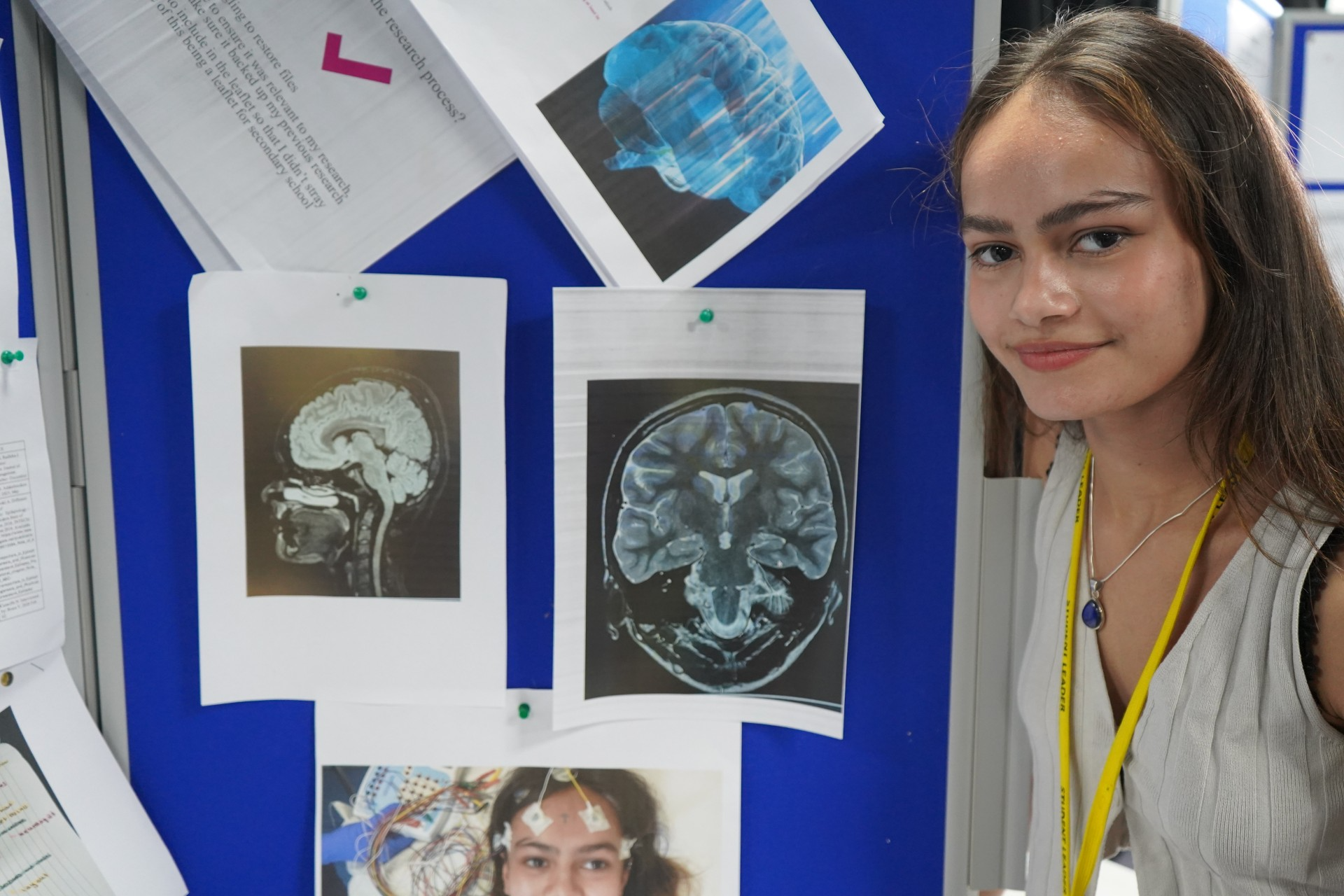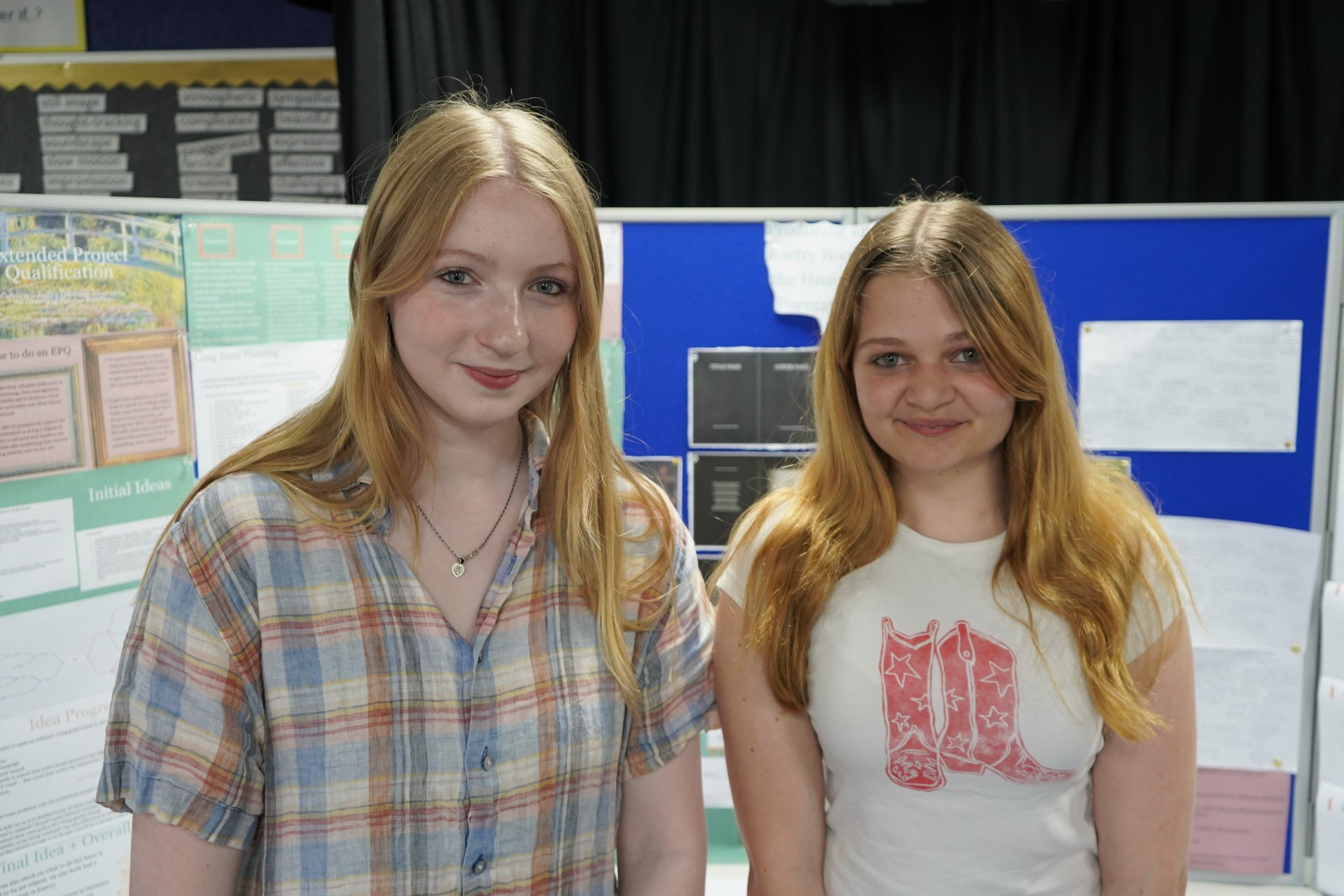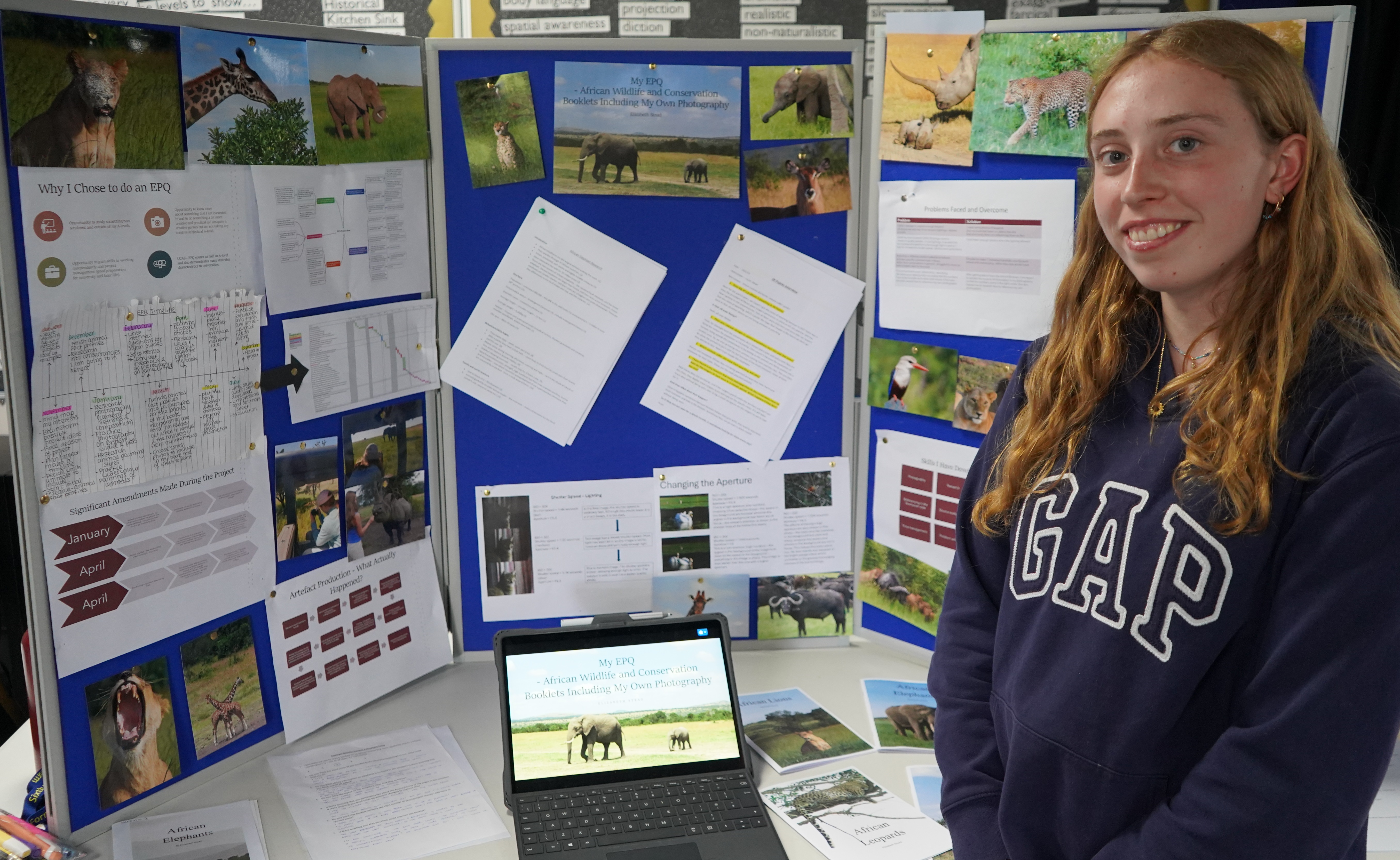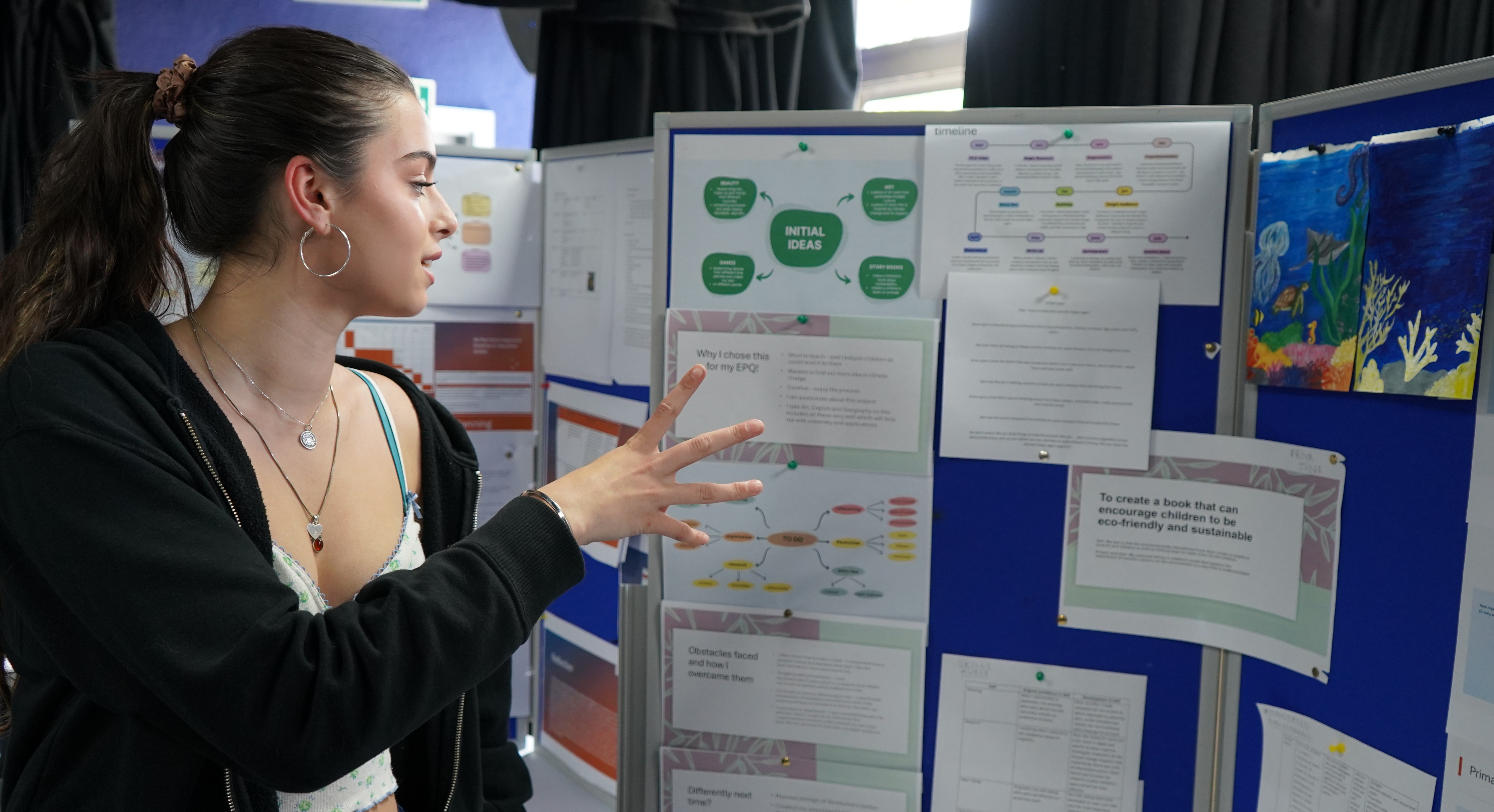EPQs give insight into the creativity and individuality of Year 12
In the last term of the year, we always look forward to viewing our Year 12s Extended Project Qualifications (EPQs) which are designed to extend and develop students' skills beyond the A level syllabus and gain them the equivalent of half an A Level (or 28 UCAS points). Readily recognised by universities and employers, it's a qualification in critical thinking, problem-solving and independent learning.
At St Mary's annual EPQ marketplace, out students displayed the blueprints for their projects, demonstrating their ability to create and lead their own project, carry out research, analysis, and evaluation, and then design and presentation.
We are delighted to share just a few of the many unique and fascinating EPQs that were presented at the marketplace:
Victoria B. on epilepsy
 Victoria plans to go to university and study to become a physiotherapist.
Victoria plans to go to university and study to become a physiotherapist.
She appreciates the vital need for medical information to be condensed and easily understandable, and her EPQ focusses on maximising the awareness of a particular form of epilepsy, juvenile myclonic epilepsy (JME).
Her medial information leaflet is designed to educate secondary school students in particular, because JME is not usually diagnosed until a student's university years when stress, lack of sleep, pushing too far, (burning the candle at both ends) can unexpectedly trigger an episode.
By harnessing her own experiences, and images of her own brain, her leaflet is highly informative and set to register with its intended audience.
Lara C. and Ellen W. combine poetry and art
 Usually, EPQs are highly independent projects but, this year a natural team emerged, where two students embarked on a joint EPQ, each with their own individual processes but requiring a simultaneous appreciation of them both to see the overall intended outcomes. Special permissions had to be sought to approach their EPQs in this way.
Usually, EPQs are highly independent projects but, this year a natural team emerged, where two students embarked on a joint EPQ, each with their own individual processes but requiring a simultaneous appreciation of them both to see the overall intended outcomes. Special permissions had to be sought to approach their EPQs in this way.
The EPQs of Lara and Ellen combine the appreciation of art (that’s Ellen’s forte) with the love of poetry (Laura’s passion) to create an illustrated book of poetry inspired by the history of famous paintings and the way they were created. Both students have a love of history and the history of art, so they quickly found their ideas were mutually compatible.
Ellen is a keen artist and researched the backgrounds behind some jointly chosen iconic paintings, their historical context and how each artist went about its creation. To give the reader a visual steer, she then produced her own interpretation of each masterpiece with which to illustrate Lara's poems, allowing her to develop her own skills while also cleverly avoiding copyright issues in the production of the book.
Lara’s initial idea for her EPQ involved politics and the complexities of today’s voting methods, before she decided that her real passion, and therefore a passionate and engaging EPQ, lay with poetry.
She researched poetry in all it’s different styles, including the Haiku and the French villanelle, each with their strict constraints on stanzas and syllables.
Against the backdrop of Ellen’s representations of classic paintings, she wrote poems, taking inspiration from the influences on the original artists and aligning a style of poetry to each.
So, for example, Monet was probably influenced by Japanese artists, leading to his waterlilies being described in a Haiku, while van Gogh’s Starry Night lent itself to the constantly repeating refrain of a villanelle.
Both students found working together was, overall, a more stress-free experience as they were able to support each other while working towards their own goal, and they both agreed that their researching and all-important referencing skills had significantly improved.
 EPQs are often an expression of the student's own interests, taking inspiration from something unrelated to their studies. For example, Elizabeth S. used her personal experiences and her own photography skills to produce an incredibly eyecatching series of wildlife and conservation booklets about the different species she has seen in Africa.
EPQs are often an expression of the student's own interests, taking inspiration from something unrelated to their studies. For example, Elizabeth S. used her personal experiences and her own photography skills to produce an incredibly eyecatching series of wildlife and conservation booklets about the different species she has seen in Africa.
 Priya J. began her EPQ by researching which environments have been/are being most affected by human activity before embarking on a children's book for youngsters who are growing up in a world where climate change is a certainty. She wants the next globally aware generation to have grown up with eco-friendly and sustainable habits already second nature and her book projects the idea that we can all make the animals happy through our own actions. Her book is open-ended, leaving the reader to decide the outcome because, in her words, she "did not want to write history before it has happened, and before we have had a chance to make a difference."
Priya J. began her EPQ by researching which environments have been/are being most affected by human activity before embarking on a children's book for youngsters who are growing up in a world where climate change is a certainty. She wants the next globally aware generation to have grown up with eco-friendly and sustainable habits already second nature and her book projects the idea that we can all make the animals happy through our own actions. Her book is open-ended, leaving the reader to decide the outcome because, in her words, she "did not want to write history before it has happened, and before we have had a chance to make a difference."